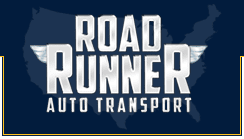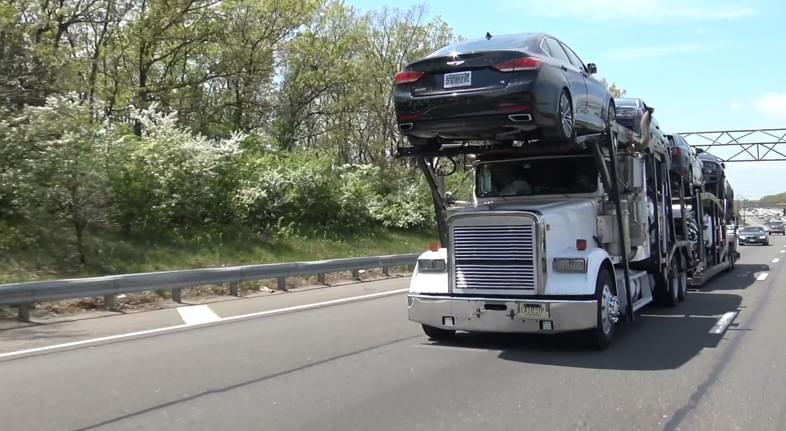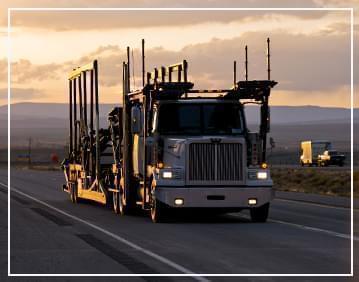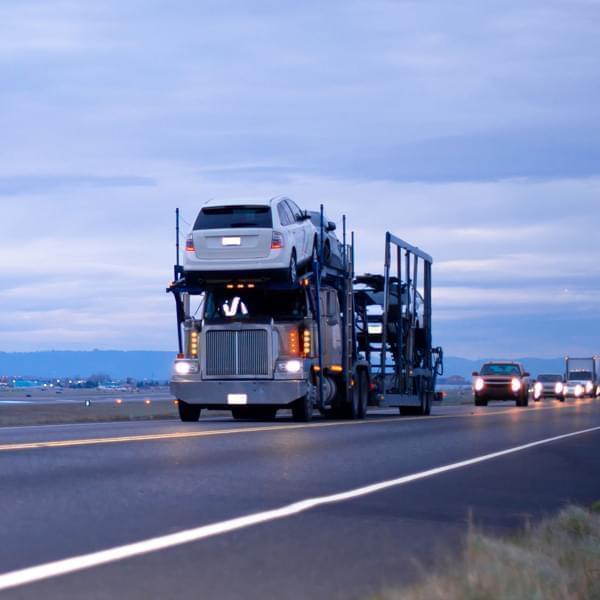Shipping trucks requires careful planning and execution to deliver them safely and efficiently. RoadRunner Auto Transport, top commercial truck shipping company in the United States, specializes in transporting all types of freight, including trucks, across the country. This article will explore the key considerations for shipping different classes of trucks.
Types of Trucks That Get Shipped
Many types of trucks get transported in the U.S. for various purposes:
Pickup Trucks
The bestselling vehicle class in the country, pickup trucks need shipping for deliveries to dealerships or relocations. The major pickup truck models shipped include the Ford F-150, Chevy Silverado, GMC Sierra, Ram 1500, Toyota Tundra, and Nissan Titan. Both new and used standard-sized pickup trucks, as well as oversized pickup trucks, require transport.
Commercial Trucks
These heavy duty trucks transport goods across long distances. Common commercial trucks that require shipping are tractor-trailers, dump trucks, utility trucks, concrete mixers, garbage trucks, street sweepers, flatbed trucks, tow trucks, and tank trucks. Food trucks and semi-truck delivery and shipping also occur regularly.
Emergency Trucks
Critical emergency response vehicles like fire trucks, ambulances, police trucks, and paramedic trucks often get shipped between municipalities or delivered from manufacturers. These sensitive vehicles need safe enclosed truck transport services.
Military Trucks
Tactical trucks designed for military operations also frequently ship between bases or deployment areas. Some examples are cargo and troop transport trucks, M35 21⁄2-ton cargo trucks, and Humvees. Armored and weaponized military trucks require highly rated specialized shipping handlers.
Custom Show Trucks
Unique custom automotive vehicles built for car shows also commonly need truck delivery service to exhibit events. These customized trucks stand out with extensive aftermarket modifications and components.
Off-Road Recreational Trucks
Off-roading pickup trucks, ATVs, UTVs, and rock crawlers built for recreation in remote areas may need to be transported to different rally sites around the country.
This wide range of truck types poses unique logistics demands for the shipping process.
Logistics and Considerations in Shipping Different Truck Types
Shipping various truck types poses unique logistics challenges:
Weight and Dimensions
Gross vehicle weight ratings can range widely from small-sized pickup trucks under 6,000 lbs up to commercial tractor-trailers exceeding 80,000 lbs. Load capacity and proper trailer selection must match this weight. Smaller single-unit straight trucks may weigh 15,000-30,000 lbs. The dimensions of truck lengths, widths, and heights also impact shipping requirements. Oversized loads need special permits.
Securing the Cargo
Different tie-down standards apply depending on truck type and cargo area access points. Grade 70 transport chains offer high strength for heavy haulers. Softer ratchet straps and protective corner guards secure lighter vehicles. E-tracks, rings, and hooks enable robust anchoring. Special equipment maneuvers tall, awkward loads.
Environmental Protection
Enclosed trailers with rigid walls and roofs provide maximum protection from road debris, weather elements like rain or snow, and road hazards like flying stones. Open car haulers leave trucks more exposed to the environment and require weatherproof coverings.
DOT Safety Regulations
Extensive DOT regulations govern commercial trucking and shipping industry safety processes. These cover driver hours, load securing rules, hazmat transport, overweight permit procedures, commercial driver licenses, and maintenance. Strict compliance is mandatory or companies risk violations and hits to their safety records.
Inventory Tracking
RFID tags applied to trucks and scanning at shipping terminals enable close monitoring of real-time locations from origin to final destination. GPS vehicle tracking communicates truck geographic coordinates across cellular networks. This provides both logistics agents and recipients with shipment visibility.
Final Mile Delivery
Navigating tight urban spaces poses difficulties for a large truck delivery. 55-foot trailers may block traffic when backing into delivery lots. Coordinating truck arrivals in congested cities requires precision timing. Any damaged goods must be noted on the bill of lading before acceptance.
Key Components of Shipping Different Truck Types
These key components enable safe and efficient commercial truck shipping across models:
Trailers
Step deck trailers handle low-ground clearance vehicles. Extendable sliding trailers fit longer truck beds. Enclosed trailers protect against road hazards. specialized equipment like goosenecks and lowboys provide heavy transport solutions.
Tractor Units
Day cab tractors offer maneuverability for metro deliveries. Long-haul sleepers with beds and amenities serve cross-country routes. Diesel-powered trucks supply torque for hauling 20+ ton loads.
Decking and Equipment
Aluminum and wood trailer floors protect undercarriages. Nose mount wheel lifts load small trucks. Large pneumatic forklifts manage heavy duty truck transport directly. Winches pull non-running trucks into trailers.
Securement Tools
Chains, straps, nets, and load bars anchor truck loads. Wheel chocks prevent rolling. Flags and lights enhance oversize visibility. GPS trackers monitor cargo.
Technology
Tracking apps provide real-time shipment locations. Diagnostic devices record impact, humidity, and temperature. Electronic logging devices confirm DOT compliance. Dash cams assist accident claims.
Shipping Process Steps for Trucks
Standard operating procedures apply for truck transports:
- Schedule pickup and confirm equipment matches load.
- Driver conducts walkaround inspection before loading.
- Truck drives forward onto trailer and gets centered.
- Chock wheels, attach tie-downs, corner guards.
- Seal and lock trailer doors.
- Weigh load, adjust as needed to meet axle limits.
- Obtain oversize/overweight permits if required.
- Begin transport along route to destination.
- Notify recipient of arrival time as delivery nears.
- Inspect truck and trailer for new damage before unloading.
- Release truck to owner at destination.
- Record bill of lading, complete delivery receipt.
Consistency in following these shipping process steps ensures cargo integrity.
Advantages and Challenges in Shipping Different Truck Types
Commercial truck shipping consolidated at trucking terminals offers advantages but also difficulties across models:
Advantages
- Efficient way to move trucks long distances without adding mileage
- Enclosed transport protects against weather and road debris
- Specialized trailers tailored for oversize truckloads
- Final mile service navigates tight urban deliveries
- Coordinated driver relays enable fast transit
Challenges
- Weight limits on roads, bridges, trailer axles
- Vertical clearance obstacles on routes
- Variability in commercial vs civilian truck tie-down points
- Meeting safety regulations across vehicle classes
- Unloading constraints of truck lengths in small lots
Balancing these shipping tradeoffs provides optimal transport.
The Costs Involved in Shipping Different Truck Types
Numerous variables impact freight quotes by truck shipping services:
- Transport mileage and route
- Truck dimensions — length, width, height
- Total weight and axle distribution
- Enclosed trailer vs open carrier transport
- Special equipment needs — winches, forklifts, escorts
- Permits required for oversize loads
- Supplemental "high-value" cargo insurance
- Fuel costs — diesel, biofuels, LNG, etc.
- Driver wages, scheduling, lodging
On average, typical-sized pickup trucks will cost $1.25 - $1.50 per mile for enclosed shipping on a dedicated trailer. Standard rates for large commercial tractors can range from $1.75 - $2.50 on average per mile on a flatbed. These shipping rates fluctuate based on equipment, route, and fuel pricing.
How to Get a Truck Shipping Freight Quote
Arranging truck shipping requires contacting auto transport companies like RoadRunner to obtain quotes. Provide these details when getting truckload shipping quotes:
- Pickup location ZIP code
- Delivery location ZIP code
- Date the truck is ready for pickup
- Truck year, make, model details
- Vehicle dimensions — length, height measured
- Truck operating condition - running or not
- Enclosed or open carrier preference
- Insurance needs if the value exceeds $100k
Truck shipping brokers then check route feasibility and asset availability, then give transport pricing. Price flexibility exists for flexible timing. Expedited hot shot trucking costs more yet ships faster for urgent truck deliveries.
Innovations and Future Trends in Shipping Trucks
Several cutting-edge innovations may shape truck shipping:
Autonomous Trucking
Self-driving trucks could automate road transport without a human driver's wage costs. This remains a highly complex capability undergoing testing. Machine learning models continue developing to handle diverse road scenarios.
Alternative Fuels
Electric or hydrogen fuel cell-powered tractors may someday displace diesel engines to save costs and emissions. Renewably-sourced biodiesel fuels from vegetable oils or animal fats offer a more sustainable present option.
Truck Platooning
Wirelessly-connected truck platooning tailgates tractor-trailers together at close standoffs. This reduces wind resistance for better fuel efficiency across multiple trucks. Safety demonstrations continue in pilot testing.
Logistics Technology
Improved shipment tracing through 5G and sensors may streamline truck transport. Satellite monitoring could augment cell towers in remote areas. Paperless blockchain-verified shipping documents could renovate processes as well.
Smart Truck Service Centers
Automated, centralized truck service plazas may begin offering refueling, electric charging, automated inspection, and predictive maintenance services along major freight corridors to maximize uptime.
About RoadRunner
RoadRunner is a prominent name in the transportation and logistics industry, known for its comprehensive freight services and innovative solutions. Founded on the principles of reliability and efficiency, RoadRunner offers a range of commercial truck shipping options tailored to meet diverse customer needs.
They specialize in LTL (Less Than Truckload) freight shipping, providing cost-effective solutions for businesses of all sizes. With a focus on technology-driven logistics and a vast network of carriers, RoadRunner ensures seamless transportation and timely deliveries. Their commitment to customer satisfaction, coupled with advanced tracking systems and responsive customer support, distinguishes them in the competitive freight shipping market.
RoadRunner continues to evolve, incorporating sustainable practices and cutting-edge technologies, solidifying its position as a trusted partner for shipping solutions. To get started with RoadRunner and explore their services, customers can use their free car shipping cost calculator for instant quotes and personalized shipping options.

















